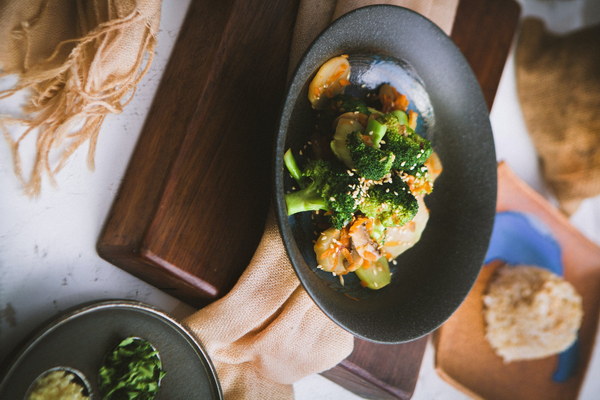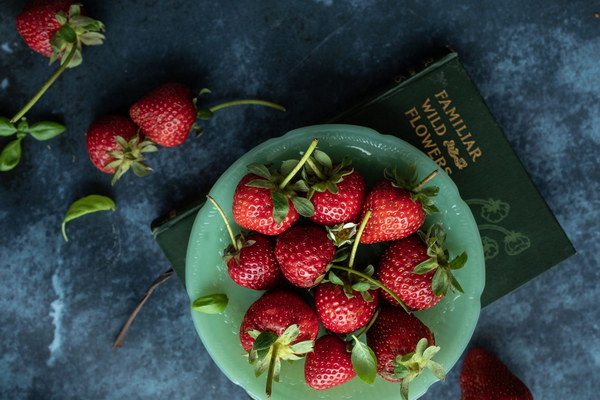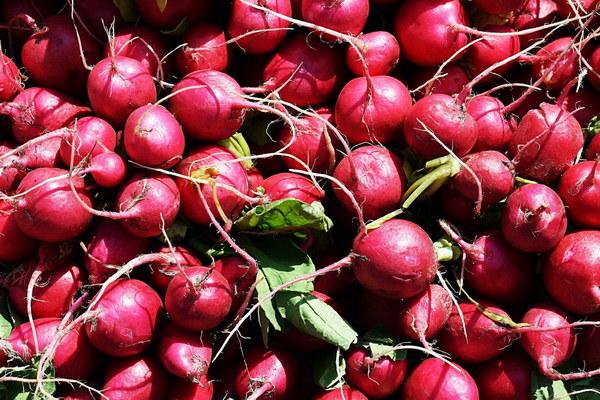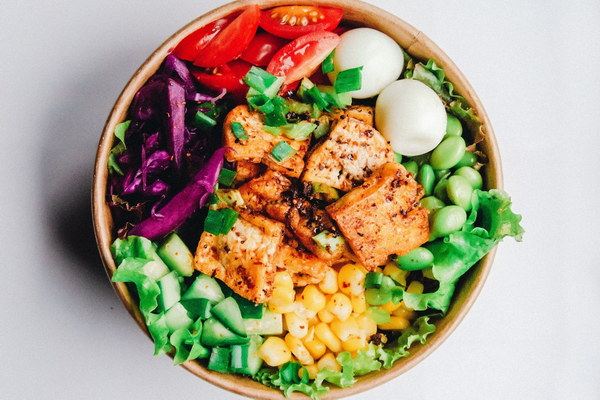Harmonizing Health A Beijing Traditional Chinese Medicine Diet Guide for Balanced Well-being
In the heart of bustling Beijing, where the ancient meets the modern, Traditional Chinese Medicine (TCM) has been a cornerstone of health and wellness for centuries. TCM dietetics, a key component of this holistic practice, offers a unique approach to balancing the body and mind through the consumption of specific foods. This article delves into a Beijing TCM diet guide, offering a treasure trove of recipes that aim to harmonize your body and promote overall well-being.
Understanding Beijing TCM Dietetics
Beijing TCM dietetics is based on the principle of yin and yang, the concept that the body must maintain a balance of these opposing forces to remain healthy. Foods are categorized according to their properties, such as their temperature and taste, which influence their effect on the body. The goal is to select foods that complement your personal constitution and address any imbalances you may have.
Key Principles of Beijing TCM Diet
1. Seasonal Eating: In TCM, the seasons play a crucial role in determining the right foods to consume. For instance, during the cold winter months, warm and nourishing foods are recommended to support the body's energy, or yang.
2. Balancing the Five Elements: TCM identifies five elements—wood, fire, earth, metal, and water—that correspond to different organs and bodily functions. Foods are categorized into these elements and are chosen to balance the corresponding organ systems.
3. Color Therapy: Colors are believed to have an impact on the body's organs. For example, red, the color of fire, is associated with the heart, and eating red foods like strawberries or cherries can be beneficial.
4. Taste and Temperature: Foods are also categorized by taste, such as sweet, sour, bitter, spicy, and salty, each affecting different organs. The temperature of the food, whether it's warm or cool, also plays a role in balancing the body.
Beijing TCM Diet Recipes
1. Warm and Nourishing Soup: A classic Beijing TCM soup recipe includes ingredients such as ginseng, goji berries, and dates. These ingredients are known for their warming properties and can help boost the immune system.
Ingredients:
- 1 ginseng root
- 1/2 cup goji berries
- 5-6 dates
- 8 cups of water
- Rock sugar to taste
Instructions:
- Boil the water and add the ginseng root.
- Simmer for 30 minutes.
- Add the goji berries and dates, and continue to simmer for another 20 minutes.
- Sweeten with rock sugar to taste.
2. Herbal Chicken Stir-Fry: This dish combines the nourishing properties of chicken with the healing properties of various Chinese herbs.
Ingredients:
- 1 whole chicken, cut into pieces
- 1 tablespoon goji berries
- 1 tablespoon Astragalus root
- 1 tablespoon ginseng powder
- 1 tablespoon Shitake mushrooms
- 2 tablespoons soy sauce
- 1 teaspoon sesame oil
- 1 tablespoon cornstarch
- 2 tablespoons vegetable oil
- Salt and pepper to taste
Instructions:
- Marinate the chicken pieces with soy sauce, sesame oil, salt, and pepper for 30 minutes.
- Boil the chicken in water until cooked through.
- Sauté the Shitake mushrooms and goji berries in a pan with vegetable oil.
- Add the chicken, Astragalus root, and ginseng powder, and stir-fry until heated through.
- Thicken the sauce with cornstarch mixed with water and pour over the chicken.
3. Sour and Sweet Plum Soup: This soup is known for its cooling properties and can help alleviate heat in the body.
Ingredients:
- 1 cup dried plums (suanzao)
- 1/2 cup goji berries
- 1/2 cup Chinese dates

- 8 cups of water
- 1 tablespoon rock sugar
Instructions:
- Boil the water and add the dried plums, goji berries, and dates.
- Simmer for 2 hours, or until the fruits are soft.
- Sweeten with rock sugar to taste.
Conclusion
The Beijing TCM diet guide offers a wealth of recipes that can help you achieve a state of balance and well-being. By incorporating these principles into your daily life, you can support your body's natural healing processes and enjoy a healthier, more vibrant life. Remember, the key to TCM dietetics is not just about what you eat, but how you eat it—en









